It’s not every day that we get to have a one-on-one conversation with an ambassador to Egypt, but luckily, we had the chance to speak with Mr. Greg Lewis, New Zealand Ambassador to Egypt.
Greg Lewis was appointed as an ambassador to Egypt in January 2019, under the Jacinda Ardern administration, and it’s safe to say that he might be the first ambassador from New Zealand to become known to the Egyptian public.
We had the chance to speak to Greg about his long history with and love of Egypt, how it’s been for him as an ambassador and being away from home during COVID-19, similarities between Egypt and New Zealand, and the film industry in New Zealand.
Tell us about your history before moving to become the ambassador. Is it your first assignment as an ambassador, as well as working in Egypt?
This is my first assignment as an ambassador, but not my first time in the region.
I’ve been to Cairo and been posted here twice before, once for Arabic language training and the second time as the deputy head of mission, from 2009 to the end of 2011, which was quite a tumultuous time for Egypt.
I also had two postings to Saudi Arabia. So, I’ve been very privileged in terms of being able to see a lot of the region.
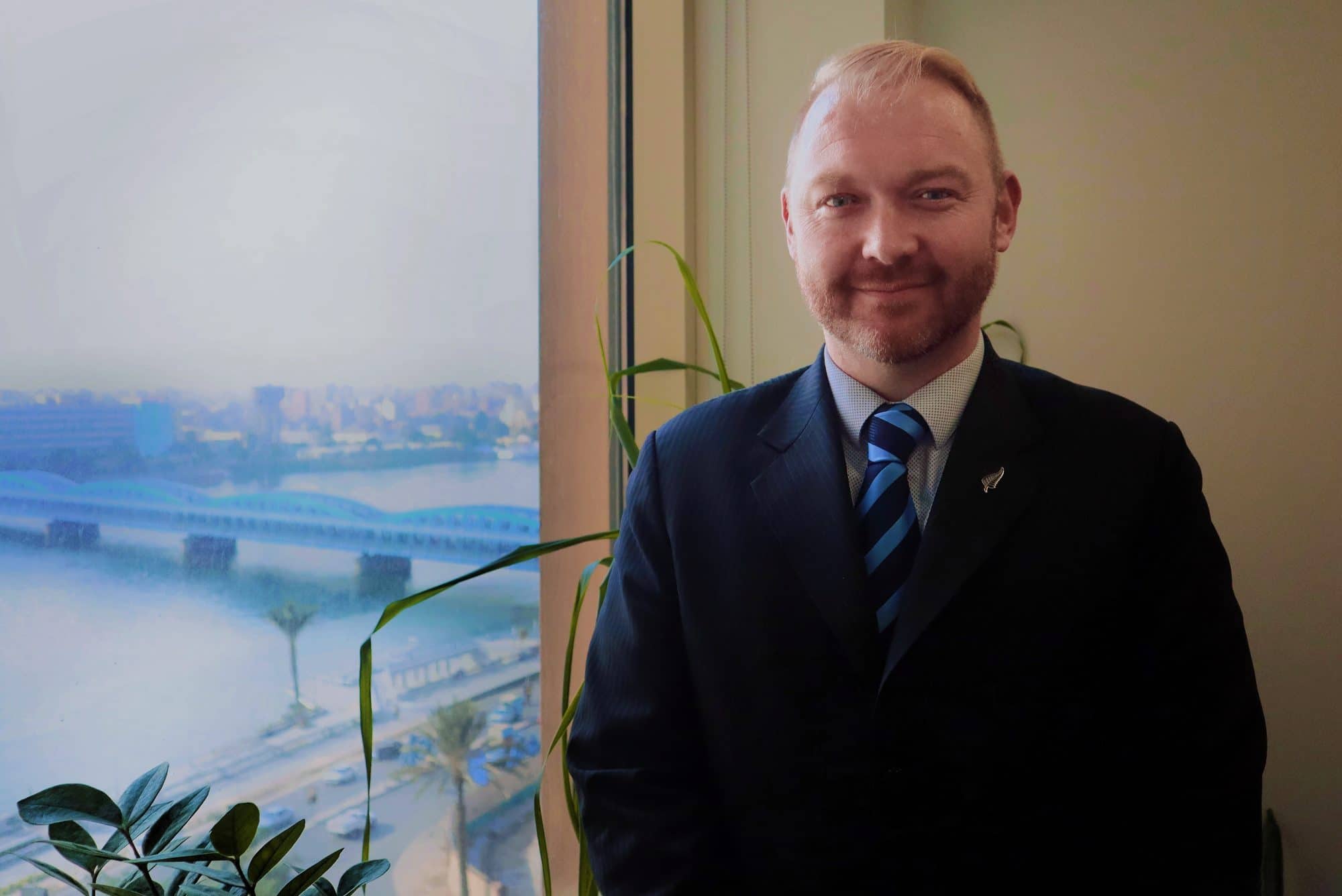
How do you feel about having Egypt as your first assignment as an ambassador?
I feel very fortunate to represent my country here in Egypt. It was always a dream to come to Egypt and it’s a privilege to have this role to lead an embassy team advancing New Zealand / Egypt relations.
Ever since I was a child I had a fascination with the country. I remember going to Egyptian restaurants in New Zealand with my grandparents. I also recall as a school boy writing an essay on former President Mubarak and representing Egypt as a fourteen year old at a youth Model United Nations General Assembly. It seems I had been preparing for this job for a long time!
You’re relatively young; how is it that you became an ambassador at such a young age?
I think I’m the second youngest ambassador in Cairo, however, I don’t think age correlates with experience or ability. I think there is a misconception that you need to be older to be an effective senior diplomat. Certainly experience with the role helps. When people question me about my age, I remind them that my Prime Minister, Rt Hon Jacinda Ardern is younger than me – and she has a much larger and far more important job.
I think being a younger ambassador means we perhaps connect better with Egypt’s youth demographic, and can also sometimes provide new and innovative ideas and fresh thinking to deal with old problems.
We’re guessing some of the fresh thinking includes your presence on social media? You managed to go viral a few times already and had everyone talking about you. Why is it that you feel it’s essential to have a presence on social media?
This is one area I like to think is fresh and contemporary thinking. Our planet is getting smaller. We are increasingly a digital and connected world. We all need to move with the times.
Traditional diplomacy of sitting down and having in person meetings is increasingly becoming displaced in our high tech world. We’ve seen this especially during the global pandemic where virtual meetings replaced face-to-face meetings.
For example, last December, New Zealand held virtual Foreign Ministry Consultations with Algeria. Officials from New Zealand dialed-in along with officials in Algeria and ourselves here in Cairo. The talks were effective and productive – and proceeded without the need for airline travel and all the costs associated with that, be they financial or environmental. It proved diplomacy in the 21st century is agile, effective and can evolve.
In terms of our social media profile, by moving a lot of our messaging and tradecraft online, we can reach a much larger demographic than what we can do just by in-person meetings.
Speaking of the pandemic, it must have been difficult as an ambassador during this challenging time. How did you manage to stay calm?
COVID-19 has been challenging for everyone. We have a saying back in New Zealand in Māori, our indigenous language, which is “He waka eke noa”, meaning “We are all in this together.” It has been tough for all of us as we have needed to adjust our lives and how we do business.
That’s something that has struck me in terms of being here during the pandemic. Just how different countries have responded to the virus, how different countries have responded to the pandemic.
COVID-19 is a global problem, which necessitates global solutions, and I think only by working together will we be able to overcome this enormous problem that’s facing us collectively at the moment.
In terms of being far away from home? Technology is wonderful. It’s very easy to connect up through FaceTime and other web-based applications to connect with friends and family, particularly for those people who’ve been in lockdown in different parts of the world.
We want to learn more about New Zealand and its culture from you as a New Zealander.
New Zealand is a relatively young country, and it’s a very ethnically diverse country. Auckland, our largest city in New Zealand, is the fourth most ethnically diverse city globally. There are over 160 different languages that are spoken in New Zealand. In terms of our culture, it is very much founded on the important partnership that exists with our indigenous people, the Māori. In my opinion, this is important in terms of how we present ourselves to the world. I speak te reo Māori, or the Māori language, and for me, that’s part of my cultural identity as a New Zealander.
Any similarities to Egypt?
We are similar to Egypt in many ways. I believe New Zealand has a strong sense of community, of fairness and of family, which we call “whanau” in New Zealand. This puts a great emphasis on the importance of people and communities.
In fact, we have a Māori proverb, “He aha te mea nunui o te Ao? He Tangata, He Tangata, He Tangata” which means, “What is the most important thing in the world? It is people, it is people it is people”.
And it makes me proud to come from a country where we do put the importance of people in our communities first.
I think that’s one reason why being here in Egypt resonates so well with me, because I see that and the importance of families and communities here. So yes, in terms of similarities, there is much warmth towards each other.
And before I forget, I was also reminded recently one of the Māori traditions for cooking is to cook using a hāngi, or underground earth oven. I know this is also prevalent in parts of Upper Egypt. So, there are some traditional culinary similarities between our peoples too.
Do these similarities mean that New Zealanders like to visit Egypt, and vice versa?
Egypt has always been a popular tourist destination for New Zealanders. I recall studying Egypt as part of the school curriculum as a child.
We have also had a long history here. During WW2, about 70,000 New Zealanders were stationed in Cairo, which represented about 7% of New Zealand’s population at the time, and of course, when many of those people went back, they took stories and the anecdotes of their time in Egypt.
“So many people love to come back and explore the country”.
In fact, I was watching New Zealand news last week about a secondary school rowing regatta in the South Island called the Maadi cup. It’s an annual competition which had its genesis with rowing competitions on the Nile here during the war. The rowing prize itself is a propeller from a WW2 airplane.
So, there are many connections between New Zealand and Egypt. I think this is reflected in the tourism and New Zealanders (or Kiwis as we call ourselves) wanting to visit.
Personally, visiting New Zealand is on my bucket list because I genuinely want to have the Lord of the Rings tour. But other than Lord of the Rings, New Zealand has been the location for several incredible movies.
Not just that, but there are plenty of filmmakers who’re taking over, from Andrew Adamson, Sir Peter Jackson, Jane Campion, and even one of the hottest names of the film industry now, Taika Waititi. Tell us more about the film industry in New Zealand.
I think that the film industry in New Zealand and Egypt share a lot of similarities. Both are leaders in their field.
Egypt has been very strong in its film industry for decades, and New Zealand has been producing many films too, from the Lord of the Rings, which unbelievably was almost 20 years ago, to the latest Avatar movies, which are being filmed in New Zealand at the moment. Filming is done nationwide. The Last Samurai was filmed in the Taranaki area, Mortal Engines in Wellington.
We’ve got some fantastic, breathtaking vistas and scenery in New Zealand, which lends itself to many different storylines in different movie titles. So, it’s certainly a booming area.
Wellington, our capital, is also known as “Wellywood”, a play on words with Hollywood. Some high profile film production teams are based there, and they do many great special effects.
It’s a field that is growing. I’d love to see collaboration between New Zealand and Egypt from film industries.

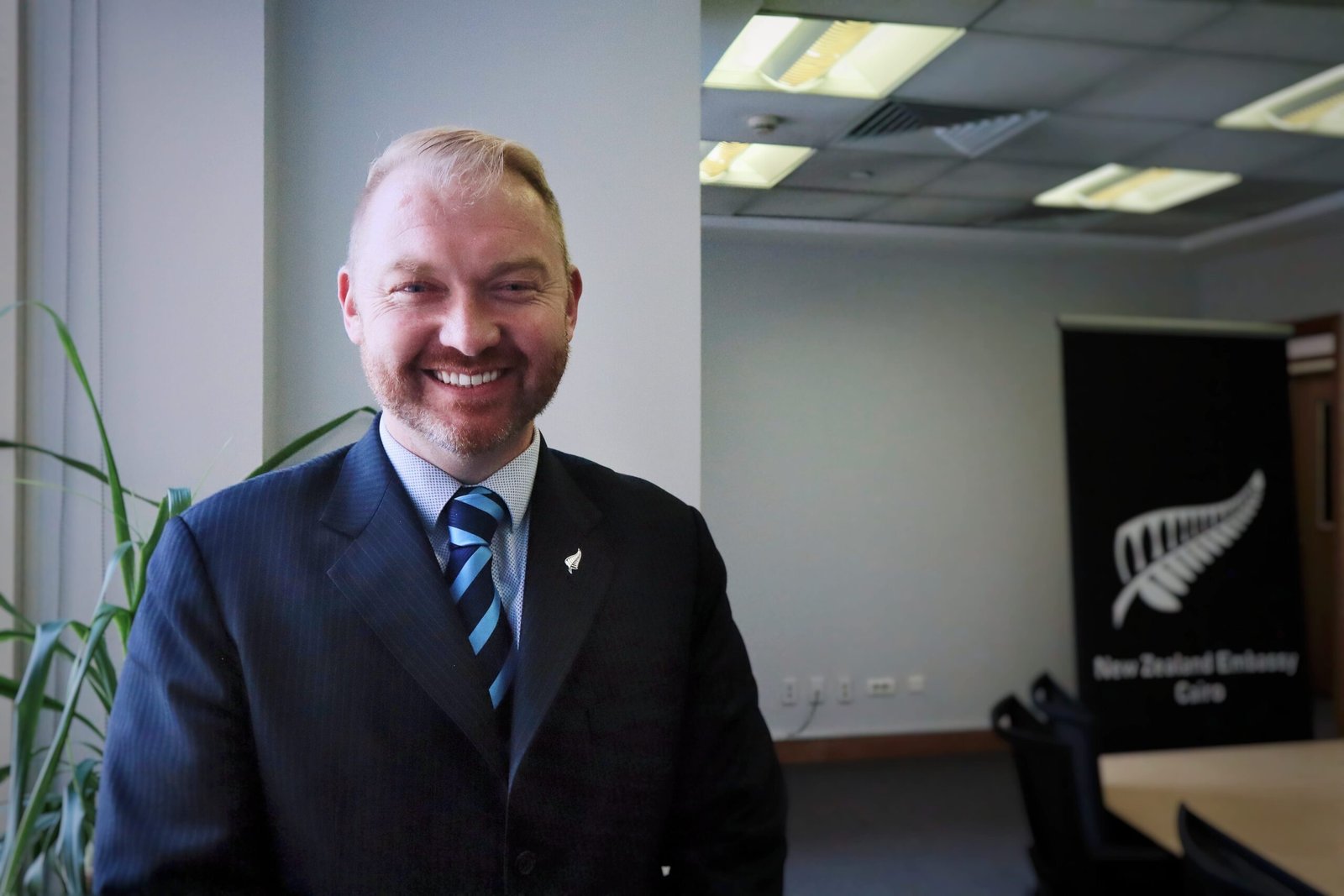
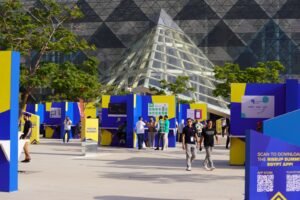
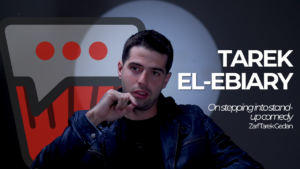
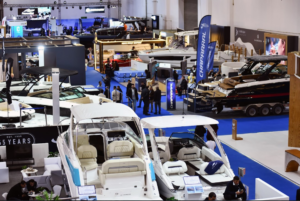

Greg is such a genuine bloke as is his whole family Dad, Murray Lewis, Mum Jan Lewis and Sister Tracy Lewis. Such a proud achievement and I am please to know Greg and his entire family including Grandad Jack And Grandmum Audrey. They would be so proud.
Hi Greg just a quick question. My mum was ivy burton and were related. Just wanted to know ho aunty Audrey is many thanks Julie elliott